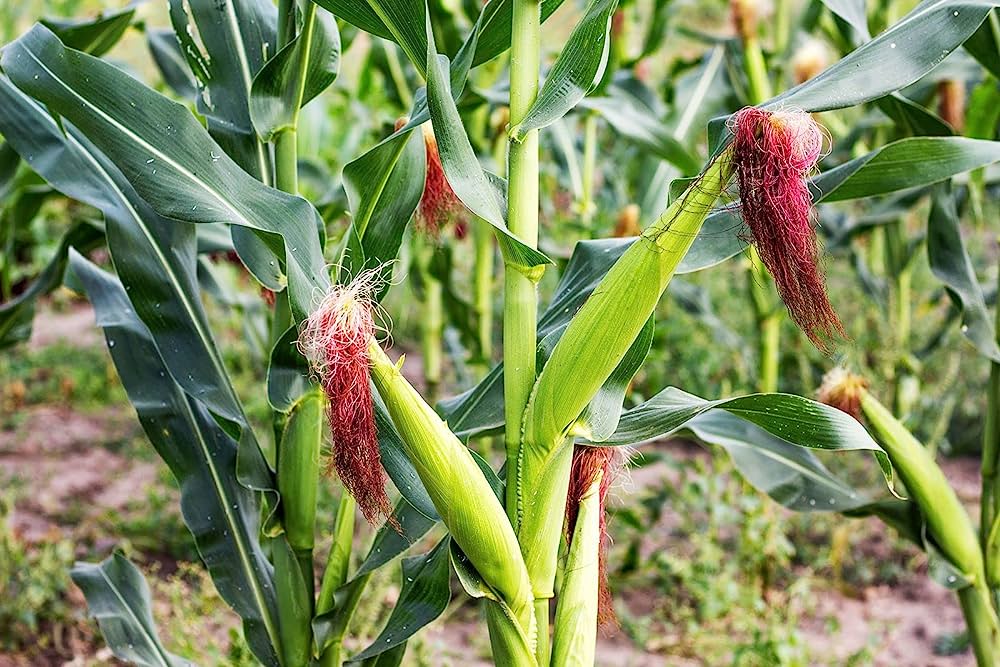Organic farming has gained widespread attention as a sustainable and eco-friendly approach to agriculture.
In this article, we’ll delve into the various advantages and drawbacks of organic farming, shedding light on its impact on the environment, human health, and the overall agricultural landscape.
Organic farming, often hailed as the beacon of sustainable agriculture, has emerged as a compelling alternative to conventional farming practices. As the world grapples with environmental concerns and a growing interest in healthier living, the spotlight on organic farming intensifies.
In this exploration, we will dissect the multifaceted landscape of organic agriculture, unraveling its distinct advantages and potential pitfalls. From environmental stewardship to the nutritional quality of produce, the discussion will navigate through the nuances of this farming approach, offering readers a comprehensive understanding of the intricate tapestry that is organic farming.

At the core of organic farming lies a commitment to environmental well-being. By eschewing synthetic pesticides and fertilizers, organic farmers aim to cultivate a harmonious relationship between agriculture and nature.
This not only shields the ecosystem from the adverse effects of chemical runoff but also fosters a biodiverse and resilient agricultural ecosystem. The ripple effects of this approach extend beyond the farm, influencing broader conversations about conservation and the delicate balance between human activity and the planet.
Beyond its environmental contributions, organic farming stands as a champion of nutrition. The absence of synthetic additives in the cultivation process allows organic crops to thrive in soil teeming with natural nutrients. Consequently, consumers can indulge in fruits and vegetables that boast heightened levels of essential vitamins, minerals, and antioxidants.

The emphasis on nutrient-rich produce positions organic farming as a compelling choice for those seeking not only sustainable options but also a nourishing diet.
However, navigating the landscape of organic farming is not without its challenges. The transition from conventional to organic practices often comes with a trade-off, with some farmers experiencing lower yields. Additionally, the larger land requirements for organic agriculture can pose scalability issues, especially in regions where arable land is scarce.
Balancing the benefits and drawbacks, this article aims to provide readers with a nuanced perspective on the intricacies of organic farming, guiding them through an informed exploration of this sustainable agricultural paradigm.
Pros of Organic Farming
Environmental Benefits
Organic farming minimizes the use of synthetic chemicals, promoting soil health and reducing water pollution. It contributes to biodiversity preservation by avoiding the harmful effects of conventional farming practices.
Nutrient-Rich Produce
Organic crops are known for their superior nutritional content. With the absence of chemical fertilizers, the soil encourages the production of fruits and vegetables that are rich in essential vitamins and minerals.
Reduced Health Risks
By steering clear of synthetic pesticides and herbicides, organic farming helps in producing food free from harmful residues. This, in turn, reduces the potential health risks associated with consuming chemical-laden produce.

Cons of Organic Farming
Lower Yields
One notable challenge of organic farming is the potential for lower yields compared to conventional methods. The reliance on natural fertilizers and pest control measures may lead to reduced productivity.
Land Requirements
Organic farming often requires more land compared to conventional practices. This increased need for space can limit its scalability, especially in regions where arable land is limited.
Production Challenges
Dealing with pests and diseases without the aid of synthetic chemicals can pose challenges for organic farmers. Maintaining crop health and preventing yield losses may require more labor-intensive and intricate practices.
Conclusion
In weighing the pros and cons of organic farming, it’s clear that this method offers numerous benefits for both consumers and the environment. However, challenges such as lower yields and increased land requirements need to be carefully addressed.
As the demand for sustainable and healthier food options grows, organic farming continues to play a crucial role in shaping the future of agriculture.
Can read more into : ข้อดีและข้อเสียของการทำเกษตรอินทรีย์
สถิติการรีวิวล่าสุด
คุณก็รีวิวบทความเราได้ แค่แชร์ แนะนำ หรือบอกต่อให้กับเพื่อนคุณ 💚

Agricultural articles
จริงหรือไม่ โคกหนองนา โมเดลแห่งการพึ่งพาตนเองที่ยั่งยืน
the New Agricultural Theory, focusing on sustainable land management, improving farmers' quality of life, promoting
อ่านบทความนี้ต่อBest Infomal
ปลดล๊อคกระท่อมล่าสุด ขายได้ไม่ผิดกฏหมายแล้ว
เมื่อวันที่ 24 สิงหาคม 2564 มีความคืบหน้าเรื่องการปลดล็อคกระท่อมล่าสุด ปี 64 เป็นผลสำเร็จแล้ว หากการนำใบกระท่อมมาทำเป็นยา หรือจำหน่าย
อ่านบทความนี้ต่อBest Infomal How to
การปลูกพืชกลับหัว เพื่อเร่งผลผลิต
จากแนวคิด การปลูกพืชกลับหัว ด้วยการ ได้รู้ ได้เห็น ธรรมชาติการเติบโตของต้นไม้ ไม่ว่าลำต้น จะอยู่ในลักษณะไหน
อ่านบทความนี้ต่อBest Infomal
ข้าววัชพืช หญ้าข้าวผี ที่น่าตกใจของชาวนา
ข้าววัชพืช สายพันธุ์จากข้าวป่าที่ผสมกับข้าวปลูก กลายเป็นข้าวผี ที่ชาวนาไม่ต้องการ
อ่านบทความนี้ต่อBest Infomal
หัวเชื้อจุลินทรีย์สังเคราะห์แสงที่ใช้กับพืช
หลายคนคุ้นชินกับคำว่า จุลินทรีย์สังเคราะห์แสง ที่มีคุณสมบัติ เป็นฮอร์โมนเร่งโตให้กับพืช แต่รู้หรือไม่ว่า มีอะไรมากกว่านั้น
อ่านบทความนี้ต่อHerbs information
ถั่งเช่า สมุนไพรที่รวมตัวกันระหว่างพืชและสัตว์
ต้นกำเนิดถั่งเช่า มาจากการผสมกันระหว่าง เห็ดราที่เป็นเชื้อปรสิต และหนอนผีเสื้อกลางคืน ถือเป็นการรวมตัวกันระหว่าง
อ่านบทความนี้ต่อ